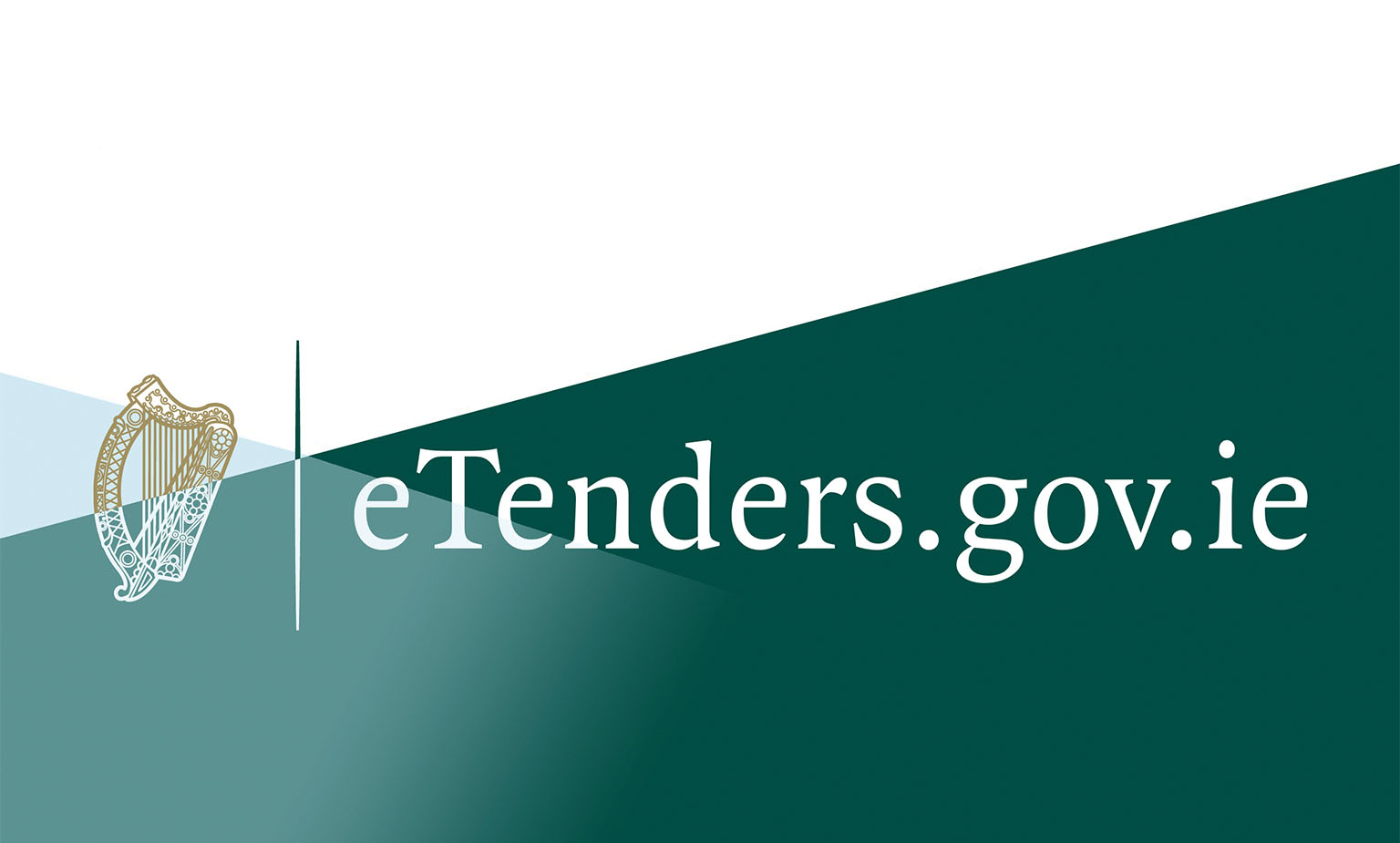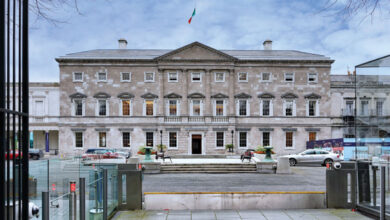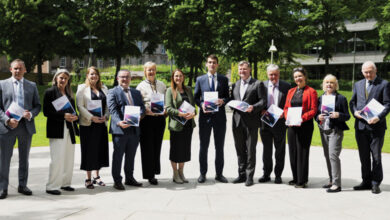eTenders

Across the public service there is a clear commitment to digitalisation and innovation. The digital landscape is ever evolving and the integration of technology and digital channels into our everyday life has been rapid and extensive.
We all interact with digital channels every day, and people have come to expect user friendly and well-designed digital channels when they interact with businesses and public services. Digital Transformation describes the development of digital technologies to improve the way we do business and goes beyond replicating existing processes into digital formats. It requires a ‘digital by design’ approach.
In the Office of Government Procurement (OGP), there are a number of digital and innovation projects taking place to make the processes of procuring goods, services and public works projects easier, more efficient and more sustainable. One of those projects is based on the eTenders platform, Ireland’s national electronic tendering website. Each year, thousands of EU and national-level competitions are published on the eTenders website. A number of updates and improvements have recently been made to the site to make it more intuitive and easier to use.
Firstly, the homepage has been updated to be more user-friendly. Information is now easier to find and the look and feel of the site has been improved. Regular eTenders users might have noticed that there is now new, more focused ‘task-specific’ training videos available to help with the more common tasks for both buyers and uppliers.
Information for contracting authorities
Contracting authorities will be glad to know that there have been a number of other practical changes to the eTenders platform, including:
- Contracting authority users now have access to a printer friendly Tender Report for tenders received on the platform. This report, which can be accessed when opening received tenders, allows the contracting authority users to more clearly identify the original name of the files uploaded by suppliers in response to a tender. Previously, a contacting authority user could only view the system-generated unique identifier number and not the original assigned by the supplier
- Improvements to the Dynamic Purchasing System (DPS) Workflow to support offline evaluations – The DPS workflow has been enhanced to allow optionality around the usage of the online questionnaire when defining a tender structure.
- Removal of the requirement for a supplier to accept a contract – Previously, a supplier needed to formally accept a contract on the platform before a contracting authority user could continue with the next task in the tender process. Following a recent software update on the platform, the contracting authority user can now bypass this requirement. The contracting authority can now register the supplier’s acceptance on their behalf, thus allowing the continuation of the procurement process.
- A dedicated button has been added to the contracting authority user’s home page to assist users in navigating to the green public procurement (GPP) platform and associated guidance material. This improvement will make it easier to search for GPP criteria, this is key to supporting procurement practices.
Information for suppliers
In 2024, the Office of Government Procurement (OGP) published a range of measures for public bodies to take in order to promote the participation of SMEs in public procurement. These measures include simplifying the process for lower value contracts, and improving transparency in competitions. Earlier this year, the OGP published a suite of information on the topic of innovation procurement. Involving SMEs in public procurement is key to enhancing innovation.
The SME sector plays a fundamental role in contributing to economic growth and employment in Ireland. The public sector is a particularly important market for small businesses so improving public procurement practices by removing obstacles and boosting the involvement of SMEs has been a key priority for the OGP.
To support users on the supplier side, the platform now redirects logged in suppliers to the ‘My list of CFTS’ page as their new default home page. From here, suppliers can more easily access the procurements they are involved in directly and make use of new functionality that gives them a visual overview of any messages received. This ensures that they never miss out on a notification relating to their procurements
Further improvements to eTenders which benefit suppliers include:
- Increases to the size of a tender response – The maximum size of a tender response has been increased to 2GB from the previous level of 500MB.
- Improvements to the Common Procurement Vocabulary (CPV) business alerting functionality has been developed to ensure that suppliers are given as many opportunities to tender as possible.
- A supplier will now receive a business alert to their nominated email address if a contracting authority publishes a tender with a main CPV code that matches with their selected CPV sub-codes. This functionality is configurable in your EO profile on eTenders procurement opportunity.
- Enhancement to the layout of these business alert notifications – As part of the CPV alerting enhancement, the layout to the email alerts that get sent to suppliers has been amended to provide more preview information, allowing the supplier to determine if the published opportunity is suitable for them to make a bid.
What next for eTenders?
The OGP is committed to improving user experience across all of our platforms. Many of the updates that have been made are as a result of listening to feedback from those who interact with eTenders regularly, such as suppliers, contracting authorities, and other key stakeholders. Users can expect ongoing changes in relation to EU eForms standards. These include the implementation of dedicated forms for pre-market consultations, along with condensed contract notice and contract award notice forms.
Further updates are planned including a change to the login pages on the platform. Soon, the platform will include case studies highlighting how SMEs have successfully tendered for government contracts.
Office of Government Procurement
eTenders is managed by the Office of Government Procurement (OGP). The OGP is the national authority for public procurement in Ireland and is responsible for driving the public procurement reform programme. The OGP is part of the Department of Public Expenditure, NDP Delivery and Reform.

E: OpEx@ogp.gov.ie
W: www.ogp.gov.ie





